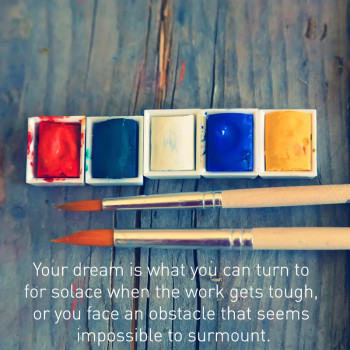I love working with creatives! As a life coach, it allows me to get creative in MY approach to coaching those with unconventional careers and dreams.
Artists, musicians, writers, entrepreneurs, career-shifters, rain makers…People who make things happen that have never happened before, who are trying to create something out of nothing! A song, a painting, a new app… creatives are some of the most potent magic makers of this world! It comes as no surprise to me that these types of people often face some unique challenges.
Sometimes it’s hard to put the pieces together that connect a vision with reality.
Sometimes it’s hard to follow your heart and figure out how the heck to make a decent living at it.
Sometimes it’s hard to even pinpoint the culprits – what exactly it is that’s getting in the way of creative success and fulfillment. In my work with creatives, I have found the following coaching to be very effective at clearing the blocks and making real, lasting improvements in their creative process.
BAD THEORIES AND BAD HABITS.
Too often, creatives buy into the cliché that suffering is a necessary aspect of creation. Or at the very least, you have to suffer in order to create something really good. Suffering takes on an almost noble quality that must be “patiently endured” to get the prize of creating something wonderful. Oh, and this belief often goes one step further – the more suffering, the better the artistic outcome. Many artists adopt a romantic relationship with their suffering, It holds them back and slows them down. It’s a diversion from creating and pitching.
Yet, in our culture we find validation of this bad theory in common negative stereotypes of artists – the starving artist, the maniac musician, the talented painter who produces masterpieces but has a disastrous personal life, the incredible writer who can’t write unless high on drugs. We might “rationally” reason: what famous artist wasn’t a raging alcoholic or drug abuser?
Thankfully, in my group work with creatives, I get to argue back. Suffering really doesn’t need to be part of the creation process. In fact, it’s a lie– suffering almost always slows down the production process. In my group coaching, we exercise and prove a different theory: we do our best work when we are enjoying our lives and having fun.
BAD HABIT: GETTING OVERWHELMED
The primary bad habit of creatives is “getting overwhelmed.”
The kids. The groceries. The dentist. The call from your mom. And on top of that, figuring out a way to get a single creative idea from your head into a physical form in the studio? This can lead to so much mental and emotional drama! As simple as it sounds, it’s true: the quickest way to STOP the feelings of overwhelm and TAKE action is to get a plan.
For real: I can’t tell you how many times I have heard my creatives say “I’m going to paint today!” and then they do the laundry, walk the dog, sit down for 15 minutes at the easel, get frustrated, make lunch, do their emails, take phone calls, and then look wistfully back at their creative productivity for the day, and call it “a bad day of painting”. Or worse – “I’m a bad painter”. Thoughtful, creative work is hard – getting it accomplished without a concrete plan of action is nearly impossible.
Solution: Make A Plan
Breaking things down into the right-size steps – and having concrete, action-oriented “to do’s” with deadlines – is the key to stopping the drama and making steady progress. Instead of saying you will finish the creative project by the end of the month, it is more productive and manageable to say you will work on the project for 30 minutes a day. You could also break down the project to specific tasks or smaller deadlines that can be handled step-by-step, like doing research for the project by a specific date then doing the outline or a rough draft by another date.
In the method of coaching I do, I teach my clients that these plans are actually promises you make to yourself that are specific and measurable, so you can actually hold yourself accountable to doing these them. When you make promises to yourself and actually keep them – that will have you both making progress and being proud of yourself for your follow-through, empowering you to repeat the process with new projects!
BAD HABIT: HARD WORK OVER HEART WORK
Another bad habit is turning “heart work” into “hard work.” Creatives lose sight of their “why” so easily. If they are even dreaming at all (versus just suffering) their dreams are often riddled with worry about what might happen, or tainted by who might not like their work. “I dream of a creative career in which I actually have time to do my work” or “my dream is making music and finally being able to pay off my debt”. When a dream is sprinkled with fear, it isn’t very inspiring. Your dream for your creative work should motivate and inspire you every single day. Your plans and promises should be geared towards achieving that dream. Your dream is what you can turn to for solace when the work gets tough, or you face an obstacle that seems impossible to surmount. Lose sight of that dream, and you lose sight of yourself.
Solution: Connect to Your Dream
Write it down. Make it juicy. Make it profound and exciting! Post it on the fridge, read it every day, and take steps towards it with conscious actions. So many people wander through life without the faintest clue of what they actually want from it, let alone how they can achieve it. The work I do with creatives gets them deeply connected to their hearts, what they truly want, and what they need to do in order to make that dream come true. I help them address the fears and misconceptions that are holding them back, design promises and plans into their lives, and then I hold them accountable to themselves.
The work I have seen come out of my creative clients is staggering. Sculptures take form, paint flies onto the canvas, songs get recorded and released. TV shows are bought and produced. Miracles happen.
But more than that, and what really makes my work meaningful for me, is this: the feeling of empowerment, success, and fulfillment I witness in my clients when they put the tools to work and experience breakthroughs that change their lives.
In a way, my clients are my own masterpieces!
Love,
Hildie
P.S. Want to learn more about how the Handel Method specifically supports creatives? Join me and creative guru Amy Butler for our Design Your Life Tele-Course for Designers/Artists. We’ll teach you how to treat your creative process with integrity and how to make a plan for your work that produces inspiring results!

